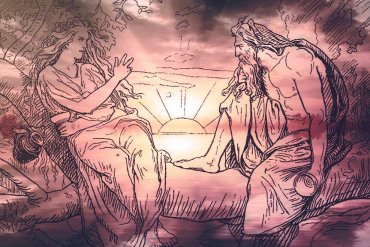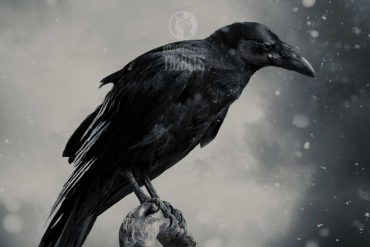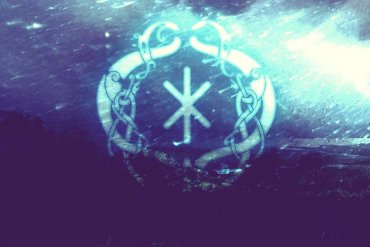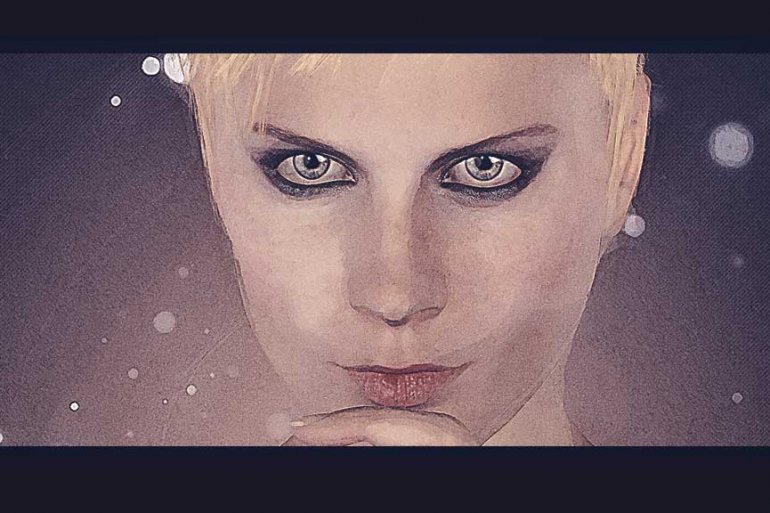Valkyrie which is composed of two words: the noun valr (referring to the slain on the battlefield) and the verb kjósa (meaning “to choose”). Together, they mean ‘chooser of the slain’. The Old Norse valkyrja is cognate to Old English wælcyrge. A malevolent female demon, a sorceress or a female witch. Among the Anglo-Saxons the valkyries were female spirits of...
In the Maier files puzzle and quest everything adds up to something and there are several intertwined levels that will eventually result in solving the Otto Maier enigma. One clue and deeper meaning can maybe be found in the history of Saga because a Saga records the history of a people’s soul. Saga is one of the Norse goddesses who...
With unflinching gaze and uncompromising intensity Julius Evola analyzes the spiritual and cultural malaise at the heart of Western civilization and all that passes for progress in the modern world. As a gadfly, Evola spares no one and nothing in his survey of what we have lost and where we are headed. At turns prophetic and provocative, Revolt against the Modern World outlines a profound metaphysics of history and demonstrates how and why we have lost contact with the transcendent […]...
An enigmatic depiction of the golden fleece quest: an Athenian Red-figure cup discovered in 1834 and attributed to the Athenian painter Douris (c. 480 BC) shows in its interior the goddess Athena who watches as a huge serpent disgorges a man, alive. Behind them is a tree with a ram’s skin in its branches. These clues assure us that the...
In traditional teaching the location of the center or primordial seat of the Olympian civilization of the Golden Age is to be found in a Boreal or Nordic region that became uninhabitable, Hyperborea. This tradition of Hyperborean origins, in its original Olympian form or in its new emergences of a heroic type, is at the basis of founding or civilizing...
Grimm writes that the Hörselberg of Thuringia was still considered in the 10th through 14th centuries to be the residence of the German goddess Holda and her host. He cited legends of night-women in the service of dame Holda. Those women rove through the air on appointed nights, mounted on beasts. He asserted that they were originally dæmonic elvish beings, who appeared in woman’s shape and did men kindnesses. Grimm asserted that the identity of Venus with the German goddess […]...
Crows are brought up in the mythology of countless cultures around the world as they are frequently characterised as guides for traveling between worlds. European folklore explains that crows convene courts, pass judgments, and also execute guilty members. Connected with the Goddess’s death aspect, crows came to be perceived as evil or simply fearsome. Witches’ foot In medieval days, finding...
Hagal is the rune of a goal and confrontation with past patterns.
The story of the Goose Girl starkly shows the process that sets out when any one chooses to neglect or simply reject reality. And as a result chooses not to move into action. The Goose Girl, once an exquisite little princess who held tremendous promise, slowly but surely lost her dignity, her horse, her clothing, and last but certainly not least her personal identity. Your identity is not only who you were, nor is it who you may be. It […]...
Envision for a minute that there is a Very High and amazingly old Civilization. It has achieved the summit of its social and logical accomplishment. At that point, in an erupsion of frenzy and greed, it destroys itself in a Great War. As the untold annihilation achieves its peak and the colossal complexity of its science and innovation — the...
In almost all myths all over the world the same theme reoccurs. The twelve knights, twelve tribes, twelve heroes etc. In his last and longest dialogue (Laws), Plato teaches: There are twelve feasts to the twelve Gods who give their names to the twelve tribes. Also in early christianity, the image of twelve disciples with the Godman figure at their...
Hamingja, as used in the sagas, stands for an abstract conception, that of something belonging to an outstanding person which is partly a matter of character and partly of personality, and partly something more than either—that strange quality of ‘luck’ or luck-lessness’ which attaches itself to certain individuals more than others. It is something which can be handed on after death, and it usually remains within one family. It is usually connected with the name, so that if a child […]...













